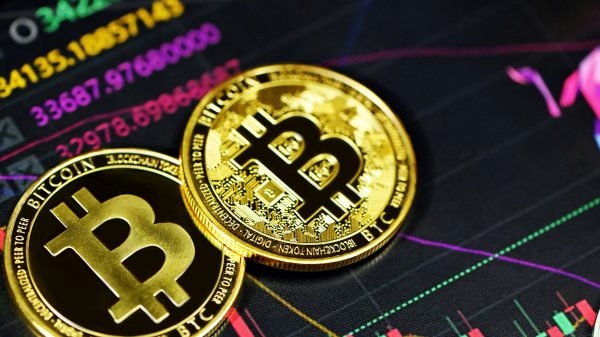In an era where viral content spreads faster than wildfire and digital platforms shape public discourse, the question of how to regulate online speech has never been more urgentвҖ”or more complicated. Across the United States, lawmakers are racing to create guardrails for what can and canвҖҷt be said or shared online. From state-level TikTok bans to federal bills targeting content moderation and user data, the legal landscape of AmericaвҖҷs digital future is changing quicklyвҖ”and understanding how to navigate it legally is essential for users, creators, and platforms alike.
At the heart of these debates lie competing interests: national security versus platform freedom, user rights versus corporate policy, and state authority versus federal oversight. HereвҖҷs a closer look at how AmericaвҖҷs digital laws are evolving and what it means for the future of online speech.
TikTok Bans Signal a New Era of Digital Nationalism
Perhaps the most headline-grabbing example of the digital law shift is the move to restrict or outright ban TikTok. Multiple U.S. statesвҖ”Montana being the firstвҖ”have passed legislation prohibiting TikTok from operating on government devices, and in some cases, on personal devices within state borders. While these laws are often framed as national security measures due to TikTokвҖҷs Chinese ownership, the legal questions they raise are far-reaching.
Can a state restrict access to a global platform based on speculative threats? What happens to creators who rely on the platform for income? And how does this align with the First Amendment, which protects freedom of expression?
These bans are already being challenged in court, with the American Civil Liberties Union (ACLU) leading several lawsuits. Courts must now decide whether the governmentвҖҷs interest in cybersecurity outweighs the constitutional rights of American users and businesses. As TikTok fights back with legal teams and public campaigns, the outcome of these cases will set powerful precedents for how far U.S. lawmakers can go in policing foreign digital platforms.
Content Moderation: Free Speech or Corporate Policy?
The legal grey zone around content moderation is another flashpoint. Platforms such as Facebook, YouTube, and X (formerly Twitter) have long exercised their right to remove misinformation, hate speech, and policy violations. But critics argue that these decisions often silence valid political opinions or minority voices. The debate reached a boiling point during the COVID-19 pandemic and the 2020 U.S. election, when platforms removed thousands of posts in the name of public safety.
Now, a wave of state and federal laws is attempting to clarify the balance between moderation and censorship. Florida and Texas have passed laws that seek to limit a platformвҖҷs ability to вҖңde-platformвҖқ users for political speech. These laws are currently under review by the U.S. Supreme Court, with rulings expected to define whether tech giants act more like private publishersвҖ”or public utilities bound by First Amendment standards.
Until then, platforms are navigating cautiously. Many are outsourcing moderation to AI tools and third-party fact-checkers to limit legal liability. For users, this means a new era of flagged content, appeals systems, and transparency reportsвҖ”all part of a broader move toward legally defensible moderation.
Data Privacy Laws Are No Longer Just a European Idea
Until recently, the U.S. lagged behind EuropeвҖҷs General Data Protection Regulation (GDPR) in protecting user privacy. ThatвҖҷs rapidly changing. States such as California, Virginia, and Colorado have implemented sweeping digital privacy laws that require platforms to disclose how they collect, store, and share user data.
The California Consumer Privacy Act (CCPA), in particular, gives users the right to request their data, demand deletion, and opt out of data sales. It also imposes hefty fines on companies that fail to comply. These regulations are not just symbolicвҖ”theyвҖҷre forcing Big Tech to overhaul how user data is handled nationwide, even in states without privacy laws, just to maintain consistency.
Federal lawmakers are now working on a national data privacy bill to unify these standards. But until that happens, businesses and platforms must navigate a patchwork of state laws, while users should know their rights vary depending on location. Staying informed is not just smartвҖ”itвҖҷs legally essential.
Algorithmic Transparency and AI Regulation Are Gaining Traction
As algorithms shape what we see onlineвҖ”from search results to social feedsвҖ”questions about transparency and accountability have surged. Lawmakers are beginning to scrutinise how platformsвҖҷ recommendation engines may perpetuate bias, misinformation, or extremist content.
Recent legislation such as the Algorithmic Accountability Act seeks to force companies to audit and disclose how their systems work, especially when they impact employment, healthcare, or housing opportunities. While still in early stages, these laws represent a growing demand for ethical AI development and open algorithmic design.
For users and developers alike, the message is clear: black-box algorithms are no longer acceptable in sensitive domains. As these rules evolve, those who build, deploy, or rely on AI-driven tools must prepare to demonstrate fairness and accuracyвҖ”or face steep legal consequences.
Section 230: The Law Everyone Is Watching
No discussion about digital law in America is complete without addressing Section 230 of the Communications Decency Act. This foundational law shields internet platforms from being held liable for content users post. ItвҖҷs what allows YouTube to host millions of videos without being sued for defamation, and what lets Twitter survive despite hosting controversial takes.
However, Section 230 is under bipartisan fire. Lawmakers argue that the law gives platforms too much power with too little accountability. Proposed reforms range from holding platforms responsible for harmful content to revoking protections when algorithms amplify violence or falsehoods.
While major changes have yet to pass, the pressure is mounting. If Section 230 is repealed or narrowed, it could fundamentally alter how the internet worksвҖ”pushing platforms to either censor more aggressively or limit user-generated content altogether. Either way, the legal and practical implications will be profound.
Conclusion: Staying Ahead in a Shifting Digital Democracy
As America grapples with how to regulate its digital ecosystem, the laws governing speech, privacy, and platform accountability continue to evolveвҖ”fast. For creators, users, business owners, and tech companies, staying informed isnвҖҷt just good practice. ItвҖҷs a legally necessary step toward protecting rights and avoiding penalties.
From TikTok bans and Section 230 to data privacy and algorithm audits, each new law or court decision reshapes whatвҖҷs permissible in the digital public square. The lines between platform policy, personal expression, and legal obligation are becoming increasingly blurred. AmericaвҖҷs digital future is still being writtenвҖ”but how we navigate todayвҖҷs laws will determine whether that future remains open, fair, and free.















